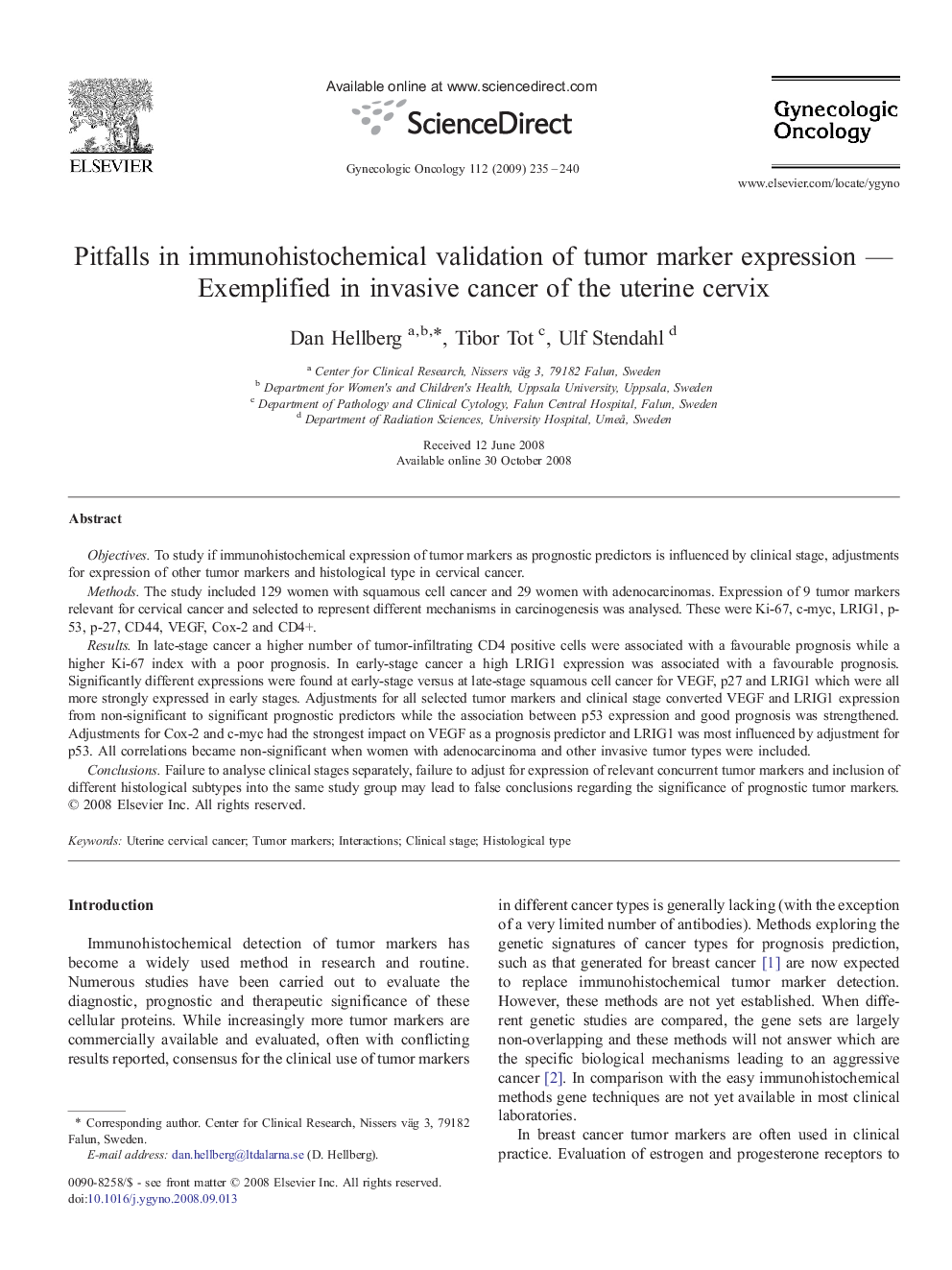| Article ID | Journal | Published Year | Pages | File Type |
|---|---|---|---|---|
| 3947456 | Gynecologic Oncology | 2009 | 6 Pages |
ObjectivesTo study if immunohistochemical expression of tumor markers as prognostic predictors is influenced by clinical stage, adjustments for expression of other tumor markers and histological type in cervical cancer.MethodsThe study included 129 women with squamous cell cancer and 29 women with adenocarcinomas. Expression of 9 tumor markers relevant for cervical cancer and selected to represent different mechanisms in carcinogenesis was analysed. These were Ki-67, c-myc, LRIG1, p-53, p-27, CD44, VEGF, Cox-2 and CD4+.ResultsIn late-stage cancer a higher number of tumor-infiltrating CD4 positive cells were associated with a favourable prognosis while a higher Ki-67 index with a poor prognosis. In early-stage cancer a high LRIG1 expression was associated with a favourable prognosis. Significantly different expressions were found at early-stage versus at late-stage squamous cell cancer for VEGF, p27 and LRIG1 which were all more strongly expressed in early stages. Adjustments for all selected tumor markers and clinical stage converted VEGF and LRIG1 expression from non-significant to significant prognostic predictors while the association between p53 expression and good prognosis was strengthened. Adjustments for Cox-2 and c-myc had the strongest impact on VEGF as a prognosis predictor and LRIG1 was most influenced by adjustment for p53. All correlations became non-significant when women with adenocarcinoma and other invasive tumor types were included.ConclusionsFailure to analyse clinical stages separately, failure to adjust for expression of relevant concurrent tumor markers and inclusion of different histological subtypes into the same study group may lead to false conclusions regarding the significance of prognostic tumor markers.
